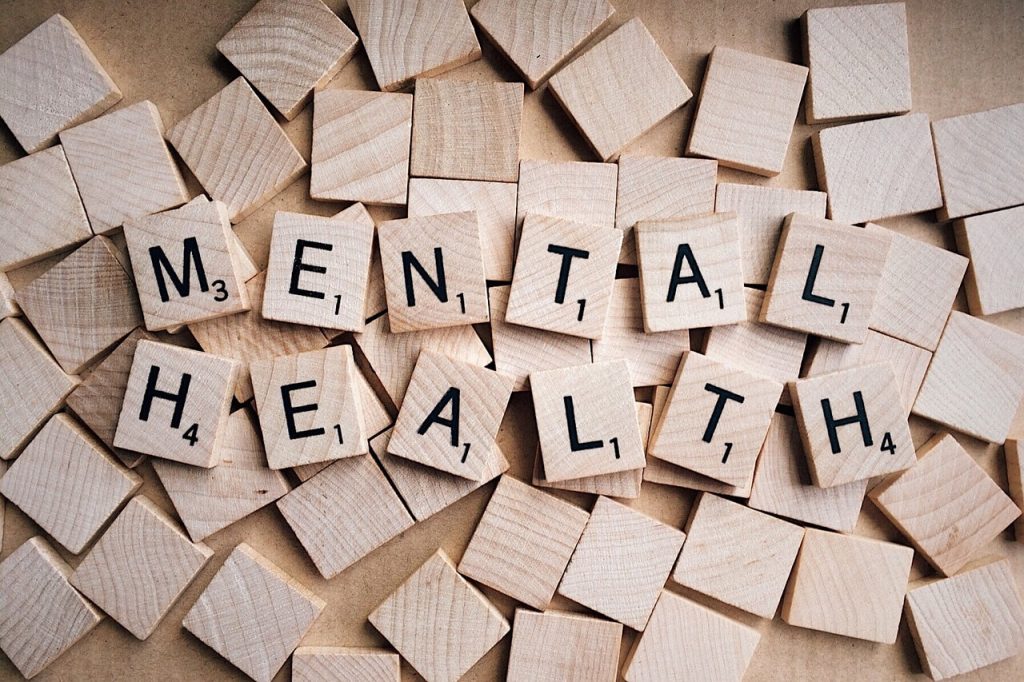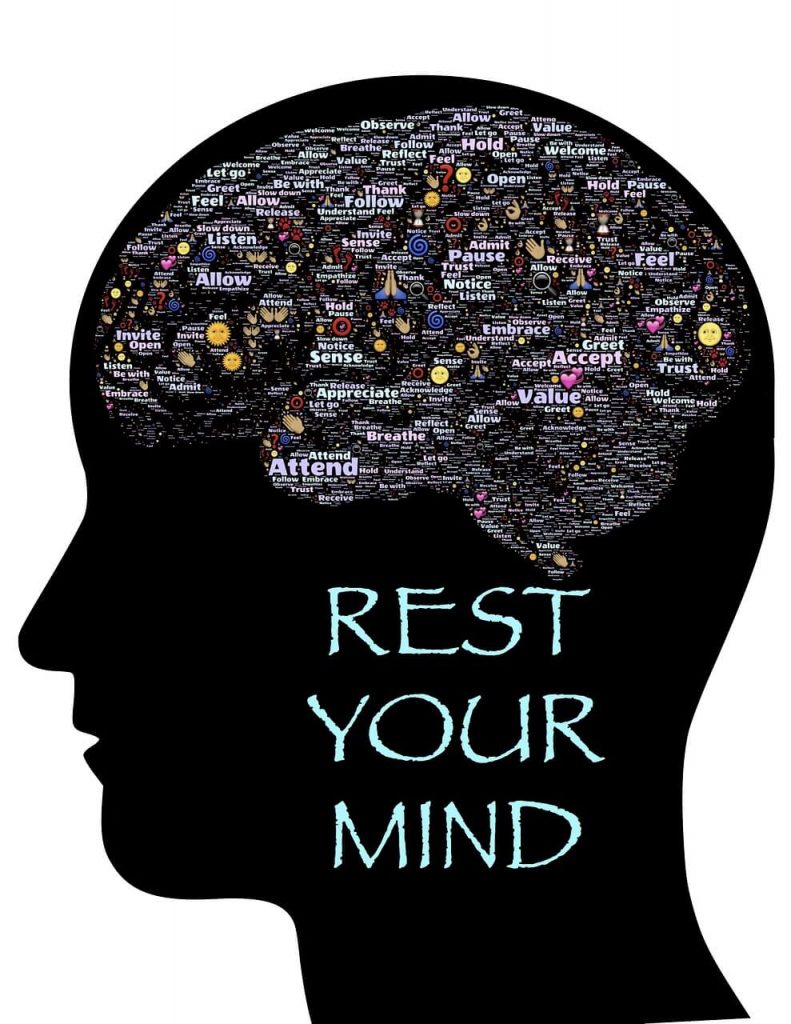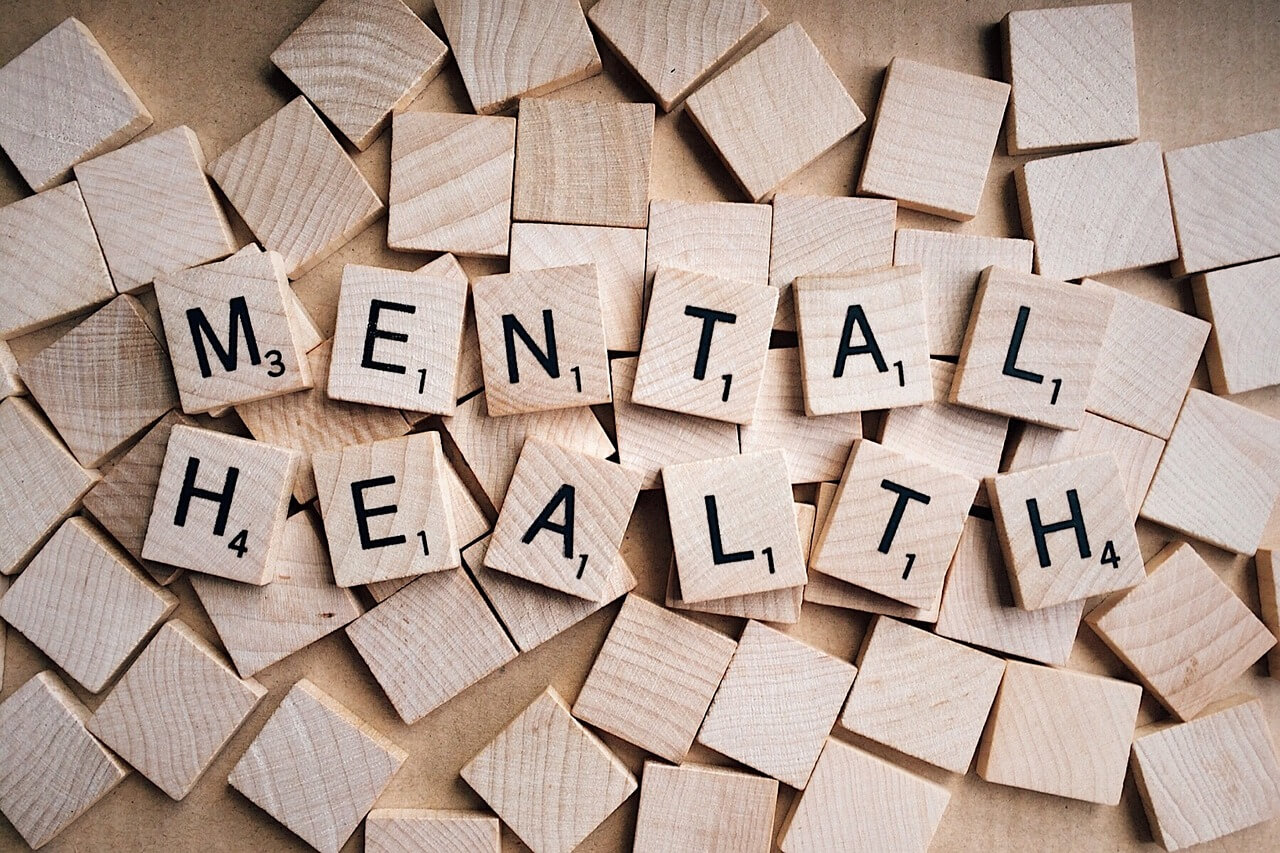The Importance of Wellbeing: Why It Matters in Today’s World
Well-being is a critical part of life that incorporates both physical and mental health, happiness, and a sense of fulfilment. It is the foundation of a healthy, productive, and fulfilled life, and it is essential for individuals, communities, and societies to flourish. This article, we will explore the importance of people’s well-being, why it matters, and what can be done to promote it.

The Importance of Physical Health
Physical health is a vital component of overall well-being. Good physical health is associated with increased energy levels, improved mental clarity, and reduced stress. It also helps individuals maintain a healthy weight, reduces the risk of chronic diseases, and enables them to engage in physical activities and sports, which can contribute to a sense of fulfillment and happiness.
The Importance of Mental Health
Mental health is equally important for overall well-being. Good mental health enables individuals to regulate their emotions, manage stress, and cope with life’s challenges. It is also linked to improved physical health, increased productivity, and a greater sense of purpose and fulfillment.
The Link between Well-being and Happiness
Well-being and happiness are closely related. A high level of well-being can lead to increased happiness, and vice versa. Happiness, in turn, contributes to better physical and mental health, higher levels of productivity, and a greater sense of purpose and fulfillment.
The Impact of Well-being on Society
The well-being of individuals also has a significant impact on society as a whole. Happy and fulfilled individuals are more likely to contribute to their communities, engage in volunteering, and participate in social activities. This, in turn, strengthens social bonds and promotes a sense of community and social cohesion
.What Can Be Done to Promote the importance of Wellbeing
There are several steps that can be taken to promote well-being, both at the individual and societal levels. These include:Encouraging healthy lifestyles:
- Encouraging individuals to adopt healthy lifestyles, such as eating a nutritious diet, engaging in regular physical activity, and getting enough sleep, can have a positive impact on both physical and mental health.
- Promoting mental health: Promoting mental health through activities such as counselling, therapy, and support groups can help individuals regulate their emotions and manage stress, leading to improved well-being.
- Fostering social connections: Fostering social connections through activities such as volunteering, participating in community events, and maintaining strong relationships with family and friends can contribute to a greater sense of purpose and happiness.
- Creating supportive work environments: Creating supportive work environments that promote work-life balance and provide opportunities for professional development can contribute to higher levels of well-beingand happiness.
The importance of Wellbeing in our lives
In conclusion, the importance of people’s well-being cannot be overstated. It is a crucial aspect of life that encompasses physical and mental health, happiness, and a sense of fulfilment. Promoting well-being is essential for individuals, communities, and societies to flourish, and there are several steps that can be taken to achieve this goal. By prioritizing well-being, we can create a happier, healthier, and more fulfilling world for everyone.
5 Scientific facts on why we should take care of our wellbeing

- Sleep is crucial for physical and mental health: Getting enough quality sleep is essential for good physical and mental health. It helps with memory consolidation, cellular repair and restoration, and overall well-being.
- Exercise benefits both the body and mind: Regular physical activity has been shown to reduce the risk of chronic diseases, improve mental health and cognitive function, and enhance mood and self-esteem.
- A balanced diet is important for overall health: Eating a balanced diet that includes a variety of foods from all food groups can provide the nutrients your body needs for optimal health and well-being.
- Mindfulness practices can reduce stress: Mindfulness practices, such as meditation, deep breathing, and yoga, have been shown to reduce stress, anxiety, and depression and improve overall well-being.
- Social support is important for mental health: Strong social support from family and friends has been linked to better mental health, lower rates of depression and anxiety, and a more positive outlook on life.
The science behind our everyday wellbeing

The science behind good wellbeing is a vast and complex field that encompasses many different aspects of human life, including physical health, mental health, emotions, relationships, and spirituality. At its core, good wellbeing is about feeling good both physically and mentally and having a sense of purpose and satisfaction in life. In this article, we will explore some of the key scientific principles that underlie good wellbeing and how they can be applied in our daily lives to enhance our well-being and overall health.
A balanced wellbeing

Physical Health
Physical health is a critical component of overall well-being. Our bodies are designed to function optimally when they receive the right nutrients, rest, and exercise. Regular exercise has been shown to be one of the most effective ways to improve physical health, reduce the risk of chronic diseases, and enhance mental health.
Exercise has many physiological benefits, including improving cardiovascular health, strengthening muscles and bones, and boosting the immune system. Regular physical activity has also been shown to have a positive impact on mental health, including reducing stress and anxiety, improving mood, and enhancing cognitive function. Additionally, exercise can help improve sleep quality and increase energy levels, both of which are critical components of good wellbeing.
In addition to exercise, a balanced diet is also important for physical health and well-being. A diet that is rich in nutrient-dense foods, such as fruits and vegetables, whole grains, lean proteins, and healthy fats, can help provide the body with the nutrients it needs to function optimally. Adequate hydration is also important, as water is essential for many physiological processes, including the regulation of body temperature, the removal of waste, and the transportation of nutrients.
Mental Health
Mental health is another critical component of overall wellbeing. It refers to our emotional, psychological, and social well-being and encompasses a wide range of factors, including mood, cognition, self-esteem, and relationships. Good mental health is essential for feeling happy, fulfilled, and capable of achieving our goals and aspirations.

One of the key ways to enhance mental health is through mindfulness practices, such as meditation, deep breathing, and yoga. These practices have been shown to be effective in reducing stress and anxiety, improving mood, and enhancing cognitive function. Additionally, mindfulness practices can help increase our sense of self-awareness, allowing us to better understand and manage our thoughts, emotions, and behaviors.
Social support is also critical for mental health. Strong relationships with family and friends can provide a sense of connection, belonging, and purpose, which can have a positive impact on mental health and overall well-being. Research has also shown that social support can be a protective factor against mental health issues such as depression and anxiety.
Emotions play a critical role in our well-being, as they help us understand and respond to the world around us. Positive emotions, such as joy, happiness, and love, are associated with good wellbeing and can help us feel fulfilled and satisfied with our lives. On the other hand, negative emotions, such as anger, sadness, and anxiety, can have a negative impact on well-being and can lead to feelings of dissatisfaction and unhappiness.One of the key ways to manage emotions and enhance well-being is through emotional regulation strategies, such as mindfulness practices and cognitive behavioral therapy. These strategies can help us better understand and manage our emotions, allowing us to respond to difficult situations in a healthy and effective way. Additionally, engaging in activities that bring us joy and fulfillment, such as hobbies and social activities, can help us experience more positive emotions and enhance overall well-being.
Spirituality is a personal and subjective aspect of well-being that refers to our connection to something greater than ourselves.
When we do not make wellbeing a priority
When we do not make wellbeing a priority, the consequences can be significant and long-lasting. Neglecting our physical, mental, emotional, and spiritual health can lead to a range of negative outcomes, including:

- Physical Health Problems: Neglecting our physical health can lead to the development of chronic diseases, such as heart disease, diabetes, and cancer, as well as impairments in physical function, such as decreased mobility and strength.
- Mental Health Issues: Neglecting our mental health can lead to the development of mental health conditions, such as depression, anxiety, and stress, which can have a profound impact on our quality of life.
- Decreased Emotional Well-Being: When we neglect our emotional well-being, we may experience feelings of unhappiness, dissatisfaction, and stress, which can have a negative impact on our relationships and daily activities.
- Reduced Productivity: Neglecting our wellbeing can also have a negative impact on our work and academic performance, as well as our ability to accomplish our goals and aspirations.
- Increased Risk of Substance Abuse: When we neglect our wellbeing, we may be more susceptible to the development of harmful habits, such as substance abuse, which can further compound the negative impact on our health and well-being.
In conclusion, making wellbeing a priority is essential for living a healthy and fulfilling life. By prioritizing our physical, mental, emotional, and spiritual health, we can ensure that we are in the best possible position to meet the challenges of daily life and achieve our goals and aspirations.
David’s Physical Wellbeing taken care of….
Once upon a time, there was a man named David. David was a hard-working businessman who was dedicated to his career and spent long hours at the office. However, despite his busy schedule, David always made time for his physical wellbeing. He believed that taking care of his body was just as important as his work.
Every morning, David would get up early and go for a run in the park. He loved the feeling of the fresh air on his skin and the sense of freedom that running gave him. After his run, he would make a nutritious breakfast, packed with fruits, vegetables, and whole grains. He also drank plenty of water throughout the day to stay hydrated.
At lunchtime, David would take a break from work and go to the gym. He enjoyed lifting weights and challenging himself to improve his strength and endurance. He also made sure to stretch before and after his workout to keep his muscles flexible and reduce the risk of injury.
In the evenings, David would cook a healthy dinner for himself and his family. He loved experimenting with new recipes and finding ways to make healthy food taste delicious. He also made sure to get enough sleep each night, setting a regular bedtime for himself and sticking to it.
David’s dedication to his physical wellbeing paid off. He felt energized and motivated, and was able to perform better at work. He also enjoyed improved mental clarity and better sleep quality, which made him more productive and happier overall.
David’s friends and family were impressed by his commitment to his health and well-being, and many of them began to follow in his footsteps.

They saw how taking care of their physical health improved their own lives and were grateful for David’s example.David was proud of himself for making his physical wellbeing a priority, and he never looked back. He lived a long and healthy life, full of energy, joy, and fulfillment. He was a shining example of the benefits of taking care of oneself, both physically and mentally.
Sarah’s change’s to improving her mental Wellbeing
Meet Sarah, a working mother of two young children. Sarah had always been a high-achiever, excelling in her career and always putting the needs of her family first. However, as her children grew older, Sarah began to feel the effects of burnout. She was exhausted, stressed, and feeling overwhelmed by the demands of her life.
One day, Sarah realized that she needed to make a change. She decided to prioritize her mental wellbeing and seek help from a therapist. In therapy, Sarah learned about the importance of self-care and how to manage her stress and anxiety. She made a plan to prioritize her mental health and began to implement small changes in her daily routine.
Sarah started each day with a few minutes of mindfulness meditation to clear her mind and focus on the present moment. She also made time for regular exercise, which not only helped her physically but also gave her a much-needed mental break from her daily tasks. Sarah also made an effort to connect with friends and family, and began to prioritize her relationships and social life.
Sarah also made a conscious effort to practice self-compassion, acknowledging and accepting her emotions without judgment. She realized that it was okay to not be perfect and that it was more important to be kind to herself and prioritize her well-being.
With these changes in place, Sarah’s mental health began to improve. She felt more in control of her emotions, less stressed, and more energized. She also found that her relationships with her children, husband, and friends were stronger than ever before.
Sarah’s story is a testament to the power of prioritizing mental health and taking care of oneself. By making small changes in her daily routine and seeking help when she needed it, Sarah was able to overcome her stress and anxiety and reclaim her happiness and well-being.
Statistics of good wellbeing vs bad wellbeing
There are several statistics that highlight the differences between good and bad wellbeing. Here are a few:
- Life expectancy: Studies have shown that individuals with good wellbeing tend to live longer than those with poor wellbeing. People with high levels of wellbeing have a lower risk of chronic diseases, such as heart disease and diabetes, which can shorten life expectancy.
- Mental health: Mental illness is much more common in individuals with poor wellbeing. According to the World Health Organization (WHO), more than 264 million people worldwide suffer from depression, and nearly 800,000 people die by suicide each year. On the other hand, individuals with good wellbeing have lower rates of depression, anxiety, and other mental health disorders.
- Physical health: Individuals with good wellbeing tend to have better physical health than those with poor wellbeing. They are less likely to suffer from chronic conditions such as obesity, high blood pressure, and type 2 diabetes. They also have lower rates of hospitalization and a reduced risk of disability.
- Productivity: Studies have shown that individuals with good wellbeing are more productive and efficient at work compared to those with poor wellbeing. Good wellbeing can also lead to increased job satisfaction and a reduced risk of burnout and absenteeism.
- Economic impact: The cost of poor wellbeing can be substantial. Chronic health conditions and mental health disorders associated with poor wellbeing can result in decreased productivity and increased healthcare costs. On the other hand, good wellbeing can lead to increased economic growth, improved job performance, and lower healthcare costs.
These statistics highlight the importance of prioritizing wellbeing and the significant impact it can have on one’s health, productivity, and overall quality of life.
For any questions you might have about motivating your wellbeing please contact Courtney Orange on details below:
info@courtneyorange.com
m- (+44) 7818 226 993
You can find Courtney on all social handles @courtney_orange_
Youtube – courtney_orange_
Instagram – @courtney_orange
Facebook – https://www.facebook.com/MasterOfitness
TikTok – https://www.tiktok.com/@courtney_orangeLinkedin – https://www.linkedin.com/in/courtney-orange-%F0%9F%8D%8A-6698465/
